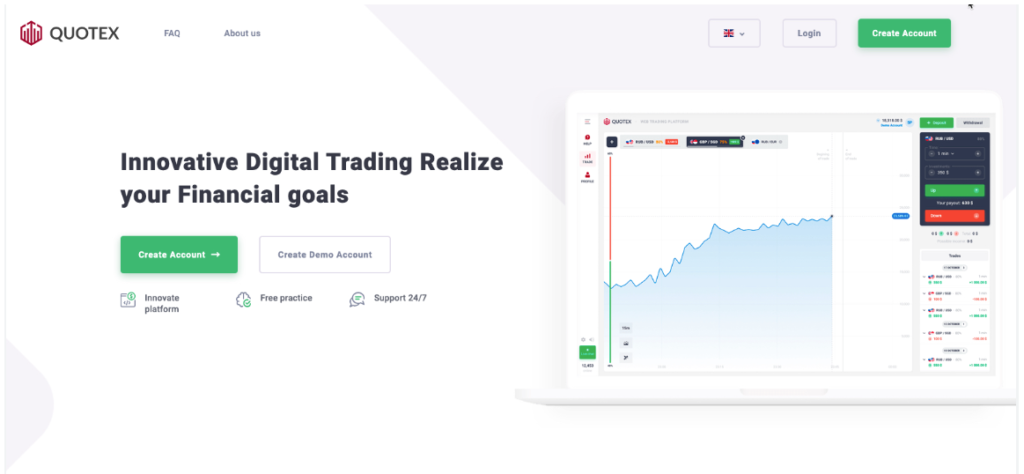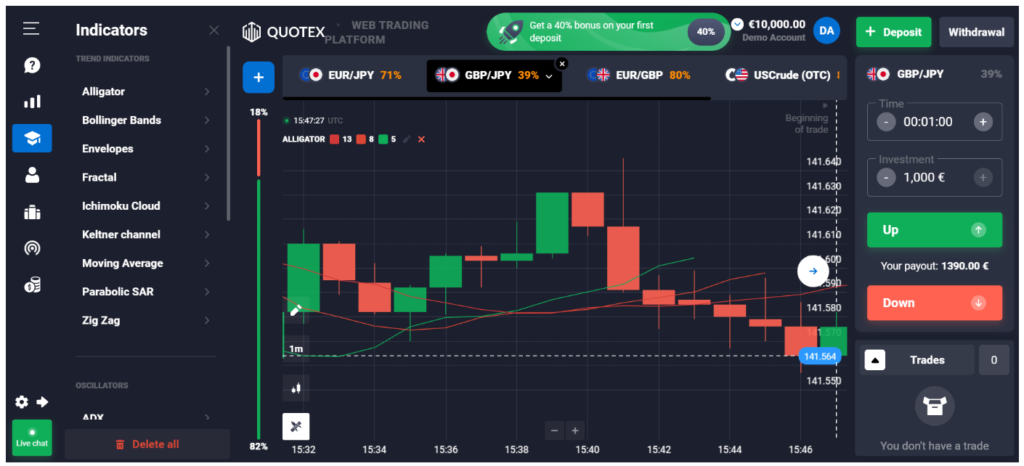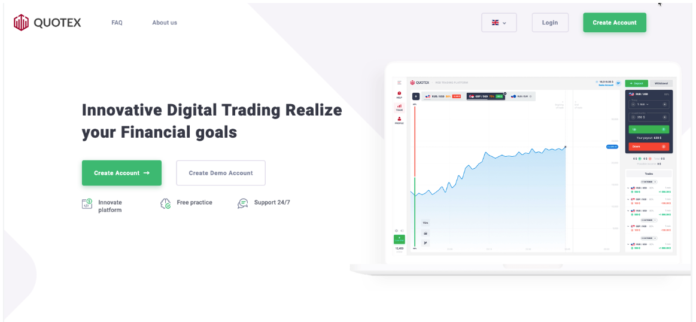Quotex is a trading platform that allows individuals to trade in financial markets such as forex, cryptocurrencies, and commodities. With the rise of online trading, many Nigerians have turned to platforms like Quotex to invest and trade in financial markets.
However, the legality of Quotex in Nigeria is a topic of much debate. Some argue that Quotex operates in a legal gray area while others maintain that it is perfectly legal. To understand the legality of Quotex in Nigeria, it is important to consider the regulations surrounding online trading in the country.
The Securities and Exchange Commission (SEC) is the regulatory body responsible for overseeing the capital markets in Nigeria. In 2020, the SEC issued a statement warning Nigerians about the risks involved in trading with unregistered online platforms. The statement specifically mentioned that certain platforms offering forex trading, such as Quotex , were not registered or licensed to operate in Nigeria.

The statement went on to warn that “any person dealing with these unregistered platforms shall be doing so at his/her own risk.” This led to some confusion among traders and potential investors, with some interpreting the statement to mean that trading on Quotex was illegal.
However, it is important to note that the SEC’s statement did not explicitly state that Quotex was illegal. Instead, it was a warning about the risks involved in trading on unregistered platforms. Furthermore, Quotex is registered and licensed to operate in other countries, such as Cyprus and Saint Vincent and the Grenadines.
This raises the question of whether or not Quotex can legally offer its services to Nigerian residents. According to Nigerian law, companies that are registered and licensed in other countries can offer their services to Nigerian residents as long as they do not violate Nigerian laws and regulations.
Quotex itself maintains that it operates legally and complies with all relevant laws and regulations. The company states on its website that it is “regulated by the International Financial Market Relations Regulation Center (IFMRRC)” and that it “complies with all international laws and regulations.”

Is Binary Options trading legal in Nigeria?
Binary options trading has become increasingly popular in Nigeria over the years, with many individuals looking to make quick profits from the financial markets. However, the legality of binary options trading in Nigeria has been a subject of much debate and speculation, as there have been concerns about fraudulent activities and scams associated with this form of trading.
So, is binary options trading legal in Nigeria? The short answer is yes, it is legal. The Securities and Exchange Commission (SEC) of Nigeria has recognized binary options trading as a legitimate investment vehicle, and has issued guidelines for brokers and traders operating in the country.
In 2016, the SEC issued a circular warning Nigerians about the risks associated with trading in binary options and other high-risk investment products. The circular stated that the commission had not issued any license to any company for trading binary options or other speculative investment products in Nigeria, and warned Nigerians to exercise caution when dealing with unregulated entities.
In addition, the Central Bank of Nigeria (CBN) has also warned Nigerians about the risks of investing in binary options and other high-risk investment products. The CBN stated that binary options trading is not regulated in Nigeria and that individuals who engage in such trading do so at their own risk.
Despite these warnings, there are still many binary options brokers operating in Nigeria, some of which are regulated by foreign regulatory bodies such as the Cyprus Securities and Exchange Commission (CySEC) or the Financial Conduct Authority (FCA) in the UK.
It is important for Nigerians who are interested in binary options trading to conduct thorough research before engaging in any trading activities. This includes researching the broker’s regulatory status, their reputation in the industry, and their track record of client satisfaction.
It is also important for traders to understand the risks associated with binary options trading, including the potential for significant losses. Binary options trading is a high-risk, speculative investment product, and traders should only invest money that they can afford to lose.
In conclusion, binary options trading is legal in Nigeria, but it is important for traders to exercise caution when engaging in this form of trading. The SEC and CBN have issued warnings about the risks associated with binary options trading, and traders should conduct thorough research before investing in this market. With proper education and risk management, binary options trading can be a profitable investment opportunity for Nigerians.
Binary options trading is a type of financial trading where the trader predicts whether an asset’s price will rise or fall within a specified time frame. If the trader’s prediction is correct, they receive a fixed payout; if their prediction is wrong, they lose their investment.
One of the concerns about binary options trading is that it can be used as a tool for fraudulent activities and scams. There have been many cases where individuals and companies have used binary options trading to defraud investors of their hard-earned money. These scams often promise high returns on investment with little or no risk, which is a clear indication of fraudulent activities.
To combat these fraudulent activities, the SEC and other regulatory bodies in Nigeria have issued guidelines and regulations for brokers and traders operating in the country. These regulations are designed to protect investors and ensure that brokers and traders operate within ethical and legal boundaries.
One of the key regulations for binary options trading in Nigeria is that brokers must be licensed and regulated by a recognized regulatory body. This ensures that brokers are held accountable for their actions and that investors are protected from fraudulent activities.
Another important regulation is that brokers must disclose all the risks associated with binary options trading to their clients. This includes the potential for significant losses, the high-risk nature of the investment product, and the fact that it is not suitable for all investors.
Overall, binary options trading is legal in Nigeria, but traders should exercise caution and conduct thorough research before investing in this market. They should only invest money that they can afford to lose and should be aware of the risks associated with this high-risk, speculative investment product. By following these guidelines and regulations, traders can minimize their risks and increase their chances of success in binary options trading.
Also Read: Is Quotex Legal in UAE DUBAI


